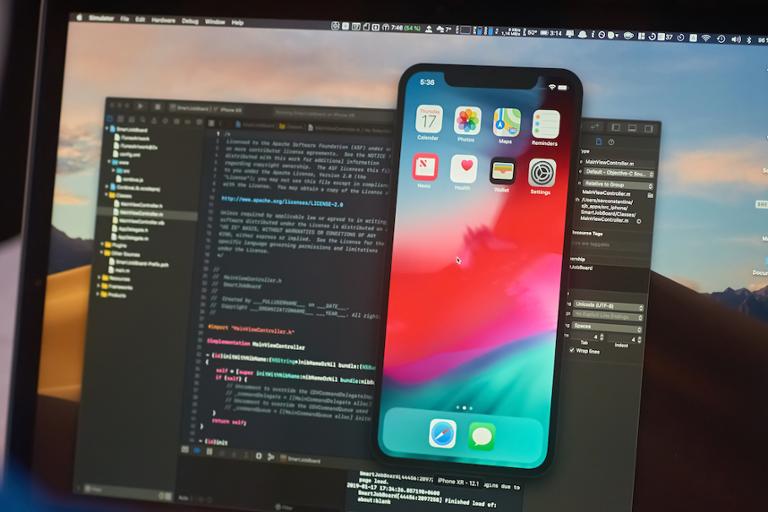Which employers are hungry for iOS developer talent? In what should come as little surprise, Apple has posted the most jobs for developers with iOS skills over the past 12 months. Other companies on this list, however, might prove a bit more of a shocker.
In order to dig up this data, we turned to Burning Glass, which collects and analyzes millions of job postings around the U.S. While Apple is first, Amazon and Google came in second and third, respectively, suggesting that both of these companies are very much about building software for iOS despite pushing their own mobile platforms (in Amazon’s case, FireOS; in Google’s, Android):
Both Amazon (via the ubiquitous Amazon Web Services, or AWS) and Google (with its Google Cloud platform) sell everything from compute capacity to developer tools via the cloud, so maybe it’s actually unsurprising that they’re very interested in iOS-related talent; after all, their clients are no doubt building tons of iOS apps.
However, Microsoft, which builds lots of iOS apps and also sells developer services via Azure, hasn’t been nearly as hungry for iOS talent in 2019; maybe it already has what it needs in-house.
If you’re hoping to make a career as a mobile applications developer, knowing iOS skills is a must if you want the fullest access to opportunities; according to Burning Glass data, some 39.6 percent of all job postings request iOS skills. As a percentage, that’s eons ahead of software developers (where only 1.3 percent of job postings request iOS-related skills) and software QA engineers/testers (where 2.8 percent of postings want iOS skills).
That being said, a number of other positions—from UI/UX designers to cybersecurity experts—inevitably intersect with iOS in some way, so familiarity with the platform is good to have for other jobs, even if the postings for those jobs don’t mention anything about iOS.
Skills Within an iOS “Skill-Set”
But which skills actually constitute an “iOS skill-set”? That’s an excellent question, and we can again turn to Burning Glass for an answer, since many job postings for iOS also break out the constituent skills required. Let’s take a look:
The primacy of Objective-C and Swift is unsurprising. Objective-C was the original programming language for the Apple ecosystem, developed way back in 1984. Five years ago, Apple released Swift, a more “modern” language eventually meant to replace Objective-C. However, it’s taken years of updates for Swift to become robust and fully featured; now (finally!) it has ABI stability, module stability, and other elements that professional developers demand. (If you’re new to Swift, and interested in short tutorials into some of its key aspects, check out these ones for Swift Package Manager and Strings.)
In a similar fashion, you can’t build iOS apps without Xcode—the integrated development environment for all of the various Apple software platforms, including macOS, iOS, and watchOS—so it’s natural that a lot of job postings ask for knowledge of it.
But the other programming languages popping up on this list—including Java, JavaScript, Python, and C++—are likely there because jobs for “mobile app developer” often don’t focus on one particular platform; even if a position’s primary mission is to build iOS apps, we imagine that employers would really, really like their workers to also know their way around building for Android (which depends on Java and, increasingly, Kotlin).
The median salary for iOS-related positions is $99,000 per year—and that’s before you factor in stock options and other potential benefits. That’s a solid financial incentive to learn the necessary skills to master building and maintaining iOS apps. Good luck!



